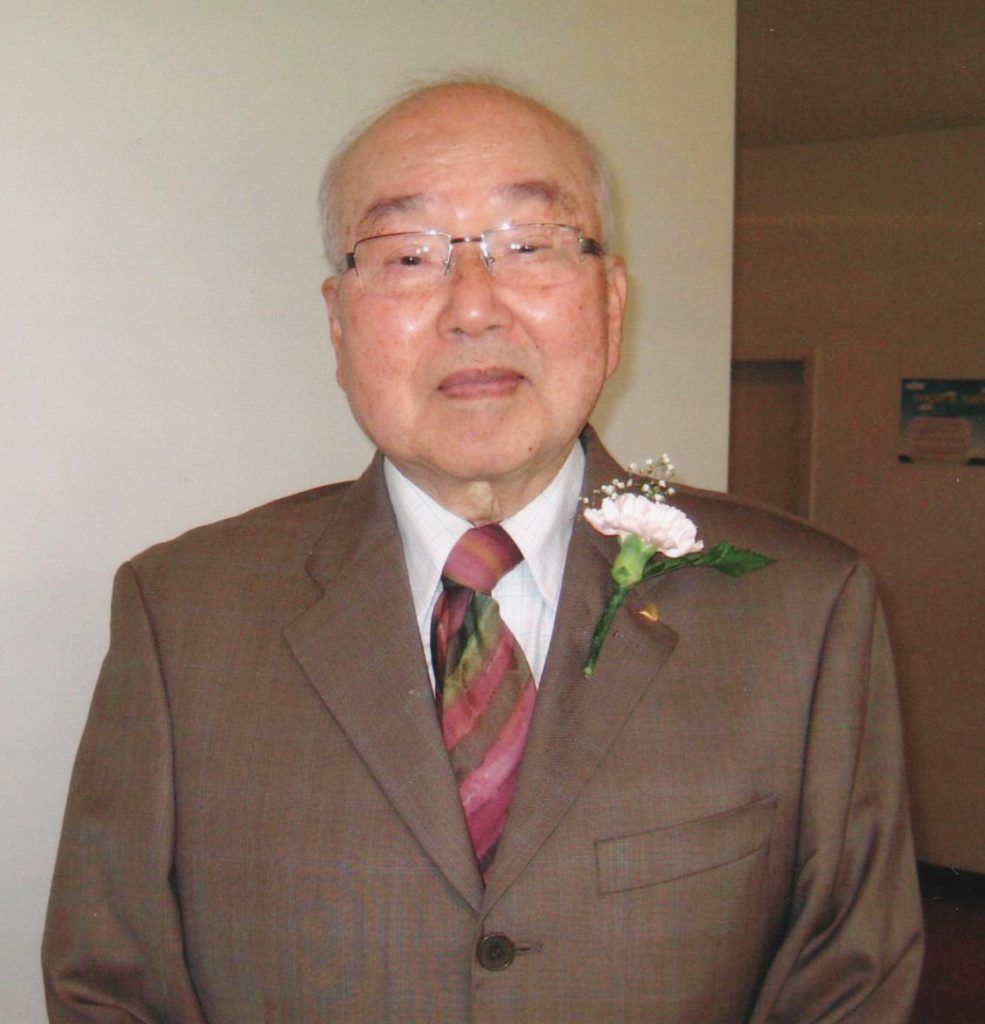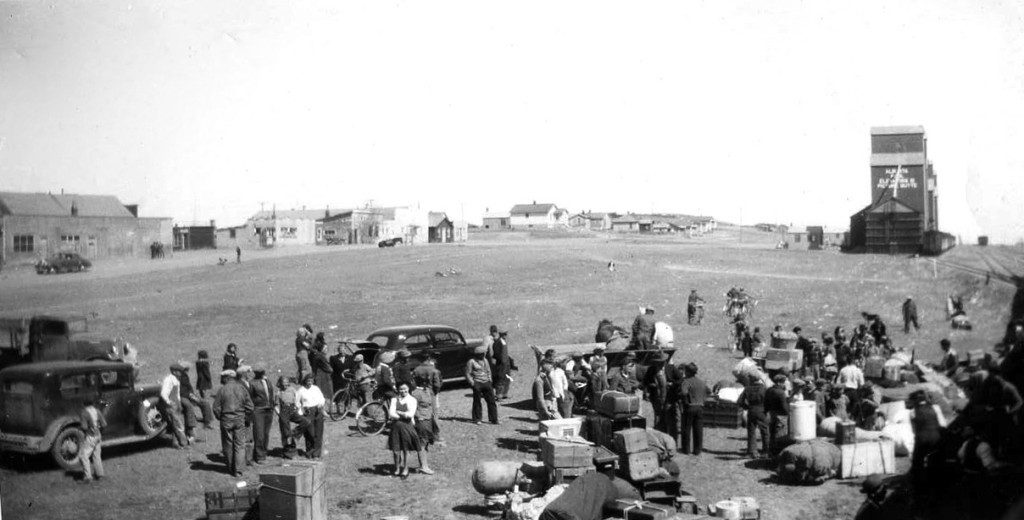
One man’s experience living through and beyond being interned in Canada
By Joel MacKenzie, Staff Writer
Makoto Ikuta, a Japan-born, retired high school chemistry teacher, sees the sun yellow. In other words, he identifies as a Canadian.
People from Japan see the sun as it is reflected in their national flag, ‘The Setting Sun.’ Mak, as Makoto goes by, explains. “So if you ask them ‘What colour is the sun?’ and they say ‘Red,’ you know they haven’t converted,” he says, laughing.
Most of Mak’s life has been in Canada; he’s only been to Japan 10 times. But, while living in Canada from 1942 to 1947, he did not share the same rights as the average Canadian citizen. Under the suspicion of espionage and sabotage, his family, and over 21,000 people of Japanese descent were deported inland, at least 100 kilometres away from the west coast.
In 1941, after Japan’s attack on the American naval base Pearl Harbour, the Canadian federal government became paranoid about the Japanese people living in coastal BC: many of them worked in the fishing industry, in close proximity to the Pacific Ocean coast that BC shares with Japan. In 1942, with Mackenzie King acting as Prime Minister, the government interned all people of Japanese descent in BC to locations at least 100 miles from the west coast.

The people were given the choice of moving into camps or inland workplaces, both with a daytime curfew. The internment camps reportedly lacked decent living conditions, like adequate heating and food. And the work was mostly hard labour, like railway construction and farm work. Mak’s father wanted him, his brothers, and his sisters to continue their education, so they moved to Raymond, Alberta to work on a sugar beet farm.
For Mak, the move proved difficult because he had never done any farm work prior to the relocation. As a 13-year-old who was used to schoolwork, the hoeing, weeding, sorting, and processing of sugar beets was a big change. “Rows and rows” of sugar beets “seemed, at the time, endless,” he remembers, laughing. And the work was “Cold, too. Hands would get really, really cold.”
But in a time when his family was moved and forced to work labour jobs, Mak didn’t become cynical. Rather, he turned to his culture for comfort. “The Japanese have a saying: ‘shikata ga nai, shikata ga nai,’ which means, ‘can’t be helped, can’t be helped.’ In time of war, it can’t be helped.”
This phrase might be the epitome of the calm, collectivist Japanese attitude that allows its people to maintain calamity and dignity during times of tragedy. Rather than an admission of defeat, the phrase should be perceived as a means to accept and move past the circumstances in life that are beyond one’s control. Emperor Shōwa, the Japanese Emperor during World War II, used the same phrase in the ‘70s when commenting about his feelings about the bombing of Hiroshima. And, after the devastating 2011 Tohoku Earthquake and the resulting tsunami, perhaps it is this same attitude that resulted in patient lines outside of areas providing food and supplies, and virtually no rioting or looting.
It was probably this same attitude, too, that helped Mak move beyond the discrimination he faced in Canada before and during the internment. While still in BC, he remembers being ignored in then average retail stores: in “5, 10 cent stores, like Woolworth…they would look after the Caucasian things and…ignore us.” In Raymond, while attending high school, he remembers one social studies teacher explain “the Japs are real savages, they eat raw fish!” And he can recall many in his school degrading Buddhism, for which Mak’s father was a minister in Raymond, as barbaric “idol worshipping.”
But Mak isn’t angered by recalling these events. “Maybe it’s because of my Buddhist upbringing, but there’s no use in hanging on to the past and being resentful, because that’ll make your life miserable. … It’s all water under the bridge now.”
Mak’s Buddhist connection did even more for him too. After the internment, it allowed his whole family to stay in Canada and for Mak’s education to continue. No one in his family was a Canadian citizen, so they all faced deportation. Luckily for them, the now high population of Japanese people in the area convinced a senator from Lethbridge to allow the family to stay, so Mak’s father could continue being the town’s Buddhist minister. Soon after, they got their Canadian citizenships, and Mak, who excelled in math in high school, was accepted to Queen’s University in Kingston, Ontario. If he had been deported to Japan, “my education would have stopped…there were so many people there, for one opening, there would be one hundred applicants,” he explains.
The whole situation only added to his motivation to achieve his degree and work a respected Canadian job. “I became a teacher,” Mak says, “because many of the Canadians didn’t know what Japanese people were like. I thought, ‘Well, I’ll become a teacher to show them that I’m just as good as Canadians.’ And I think the majority of Japanese Canadians felt that way, so they tried to excel.” At Queen’s, he achieved a degree in chemistry, and soon after worked as a research chemist. After that, he taught high school chemistry in Vancouver schools, including David Thompson, Sir Winston Churchill Secondary, and even UBC.
After spending most of his adult life as a Canadian teacher, Mak has seen society become much more accepting and compassionate than it was when he was young. He referenced the huge amount of Canadian compassion and support for Amanda Todd after her suicide last month, and Robin Tomlin’s story of having “fag” changed after being maliciously placed under his name in his 1970 high school graduation yearbook. “Fifty years ago, that wouldn’t have happened…now we’re getting to a point where we won’t tolerate that kind of stuff,” said Mak. “We’re slowly changing.”
Mak also saw the Canadian government try to make amends for the internment. In 1988, they gave a formal apology for it and announced that the surviving internees would be compensated financially; in the early 1970s, the government helped build a Japanese community center in Richmond in commendation of the events; about 10 years ago, some Japanese Canadians affected by the internment were paid reparations; and in May this year, the BC government officially announced and apologized for the fact that Japanese-Canadians were discriminated against solely for being of Japanese descent.
The apologies and compensation didn’t come without controversy, though. Mak feels that perhaps his parents should have been given more, as “I think they suffered more than I did; I was only a kid.” He also pointed out that people who were born after the date the government announced the internship were not given any money. David Suzuki’s sentiment came to Mak’s mind, that it feels harder to talk about the event after being awarded the money, as they almost feel pressured to be satisfied and silent.
As time moves on, our connections with the past are slowly becoming more distant. Soon they, at best, become text on a page, making it harder to realize how terrible attitudes like racism and discriminating events like the internment camps are, and the fact that they are a part of history. The importance of remembering and commemorating these events has never been greater, so our society can continue progressing beyond irrational fear, fear that punishes and derails the lives of innocent people.

